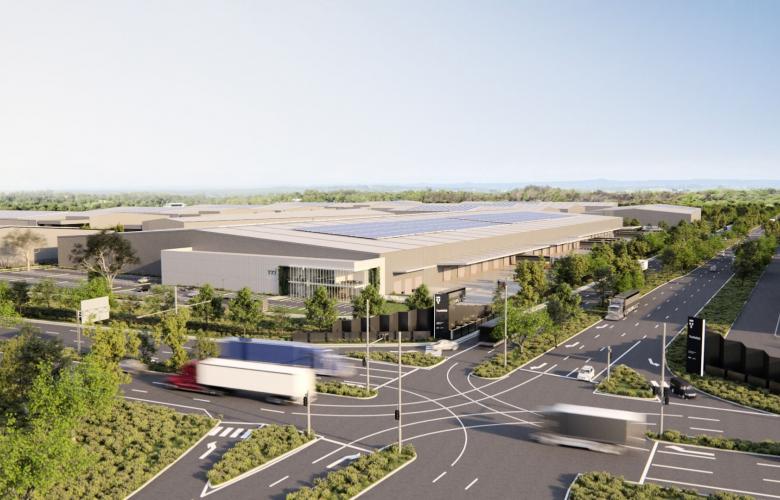Frasers Property Industrial's sustainability targets approved by Science Based Targets initiative
Contact
Frasers Property Industrial's sustainability targets approved by Science Based Targets initiative
Frasers Property Industrial, has officially received approval on its ambitious targets to reduce carbon emissions by the Science Based Targets initiative (SBTi), the peak global body in climate assessment.
Frasers Property Industrial, has officially received approval on its ambitious targets to reduce carbon emissions by the Science Based Targets initiative (SBTi), the peak global body in climate assessment.
The newly approved near-term science-based emissions reduction targets will see Frasers Property Industrial commit to reducing absolute Scopes 1 and 2 greenhouse gas emissions by 46.2% by FY2030, from a FY2019 base year. Frasers Property Industrial also commits to reducing absolute Scope 3 emissions by 46.2% in the same timeframe.
The approval means SBTi’s Validation team have determined that Frasers Property Industrial’s targets are in line with the Paris Agreement objective of limiting global warming to 1.5 degrees Celsius by 2050. It recognises the whole-of-business efforts to reduce carbon emissions within its operations and investment in projects that decrease or remove emissions from the atmosphere.
To reduce emissions, Frasers Property Industrial has installed 16 MW of solar PV globally, 623 kWh of battery storage, 1093 kVA biodiesel generator as well as retrofitted 99% of its Australian portfolio with LEDs to date.
This comes as Frasers Property Industrial ramps up its sustainability efforts in Australia with initiatives such as the Smart Warehouse Pilot Program with American retail giant Williams-Sonoma, whose facility utilises machine-based learning to improve energy consumption and environmental standards. The facility isthe first Australian built-to-suit storage and distribution warehouse with a highly energy efficient solution implemented through a combination of solar power, battery storage and biodiesel back-up generation.
Premium estate The YARDS in western Sydney, by Frasers Property Industrial and Aware Real Estate, has also recently achieved the first 6 Star Green Star- Communities rating for the Australian industrial sector.
Whilst in Europe, Frasers Property Industrial’s innovative approach to sustainable development sees brownfield development The Tube, in Germany, targeting the first ever gold certification from the Germany Sustainable Building Council. Approximately 70,000 tonnes of building waste was recycled on-site, avoiding up to 7,000 truck movements and saving approximately 28,000 litres of diesel. Another 12,400 tonnes of recyclable material was purposefully separated for reuse at the development.
Reini Otter, CEO at Frasers Property Industrial said:
“We’re proud to have our emissions reduction targets approved by SBTi, which is considered the global peak assessment body for climate targets. We’ve been progressively applying more sustainable considerations to our projects for over a decade and we will continue to invest time and resources into innovative sustainability programs that are backed by science-based targets.
“With 39% of the world’s carbon emissions, and 20% of Australia’s, coming from the real estate industry, it’s vital that we maintain focus on strategies that shift not only our business, but with our customers and the wider industry to limit global temperature rises to just 1.5 degrees by 2050.
“To halve our global emissions by 2030, we’re looking ahead to improve technology and data capabilities and ensure accurate measurement and forecasting of emissions. We’re also reducing embodied carbon within construction as well as partnering with suppliers and customers to help reduce Scope 3 emissions and piloting landfill diversion rates for construction waste.”
Frasers Property Industrial aims to foster resilient communities, provide carbon-reducing initiatives, responsibly source services and materials, provide clean energy, use green finance and be accountable through independent tools and ratings.
To achieve its ambitious sustainability goals and create a greener future for the industrial sector and broader global community, Frasers Property Industrial’s roadmap outlines actions such as working with its supply chain partners and customers to decarbonise operations, including renewable energy procurement and developing an energy efficient building standard to be put in place for all new developments.







